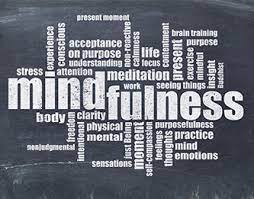For many people, mindfulness therapy is the perfect antidote to the stresses of everyday life. The goal of mindfulness therapy is to become more aware and present in order to reduce mental fatigue, anxiety, depression, and loneliness. Studies have shown that meditation is a good way to feel better. It helps people who are suffering from chronic pain. Mindfulness therapy might help you with your stress levels. It can also help you in everyday life.
Contents
- 1 What Is Mindfulness Therapy?
- 1.1 How Does Mindfulness Therapy Work?
- 1.2 What Are the Benefits of Mindfulness Therapy?
- 1.3 What Are Some Mindfulness Exercises?
- 1.4 Importance
- 1.5 How To Start Mindfulness Therapy?
- 1.6 Role Of A Mindfulness Therapist
- 1.7 Other Types Of Therapy That Incorporate Mindfulness
- 1.8 Mindfulness Therapy for Couples
- 1.9 What MBCT Can Help With?
- 1.10 Things to Consider When Choosing a Mindfulness Therapist
- 2 Conclusion
What Is Mindfulness Therapy?

Mindfulness therapy is a form of psychotherapy that helps people to focus on the present moment. It was developed in the 1970s by Jon Kabat-Zinn. The goal of mindfulness is to help people become less stressed, anxious, depressed, and lonely. This is done by helping them be aware of things that are happening.
How Does Mindfulness Therapy Work?
Mindfulness therapy works by teaching people how to focus on the present moment. This can be done through meditation or through mindfulness exercises. When people are able to focus on the present, they are less likely to be overwhelmed by their thoughts and emotions. This can help them to feel more calm and relaxed.
What Are the Benefits of Mindfulness Therapy?

There are many benefits of mindfulness therapy. Some of these benefits include:
- Reduced stress levels: When people are able to focus on the present, they are less likely to be overwhelmed by their thoughts and emotions. This can help them to feel more calm and relaxed.
- Improved mental health: Mindfulness therapy has been shown to be effective in treating anxiety, depression, and PTSD.
- Better physical health: Studies have shown that mindfulness meditation can help improve chronic pain and other medical conditions.
- Improved relationships: Mindfulness therapy is when you are aware of your feelings and needs. It can lead to better relationships with others.
- Reduced anxiety: Mindfulness therapy can help people to experience less anxiety and stress.
- Better focus: Mindfulness exercises improves concentration, which is especially helpful for children with ADHD or other learning disabilities.
- Improved sleep habits: People who practice mindfulness meditation are more likely to get a good night’s rest. This means that they won’t be as fatigued during the day, so their productivity levels will increase. They will also feel better rested when it comes time for bed at night!
- Improved concentration: Mindfulness therapy can help people to experience less anxiety and stress, which may allow them to focus better.
- Reduced impulsivity: Mindfulness exercises can help you concentrate more. That can help if you have ADHD or a learning disability.
What Are Some Mindfulness Exercises?
 34ewrr4
34ewrr4
There are many different mindfulness exercises that you can try. Some of these exercises include:
- Mindful eating: Pay attention to the taste, smell, and texture of the food as you eat it.
- Body scan: Focus on each part of your body in turn, and notice any sensations that you experience.
- Gratitude journal: Write down three things each day for which you are grateful.
- Mindful walking: Pay attention to your surroundings as you walk. Notice the sights, sounds, and smells that you experience.
- Meditation: Sit or recline in a comfortable position and focus on your breath.
A lot of good things happen when you are mindful. You will have less stress, better health, and it can make your relationships better. You will also be able to focus more, be less impulsive, have less fatigue, and sleep better. There are many different mindfulness exercises that you can try to get the most out of this type of therapy. So what are you waiting for? Give mindfulness therapy a try today!
Importance
Mindfulness therapy is a type of therapy that focuses on being present in the moment. This type of therapy can be beneficial for people who struggle with anxiety, depression, and PTSD. Mindfulness exercises can help you to feel better. Physical health, relationships, focus and concentration, and sleep quality can all be better with mindfulness exercises. If you’re looking for a way to reduce stress and improve your mental health, mindfulness therapy may be the right decision for you!
How To Start Mindfulness Therapy?

If you are interested in trying mindfulness therapy, the first step is to find a therapist who practices this type of therapy. You can ask your doctor for a referral, or you can search online for therapists who specialize in mindfulness therapy. Once you have found a therapist, schedule an appointment and talk to them about your goals for treatment. Mindfulness therapy is usually offered in individual or group settings. You will do some exercises with your therapist. The length of therapy can vary depending on the person, but it is usually between 3-5 months.
Once you have completed your therapy sessions, continue practicing mindfulness on your own! Mindfulness is a skill that takes time and practice to master. You might want to try attending yoga classes or meditation workshops in order to learn more about how these practices work. The important thing is that you take action today! If you take interest in trying mindfulness therapy, find a therapist who specializes in this type of therapy.
Role Of A Mindfulness Therapist

If you are considering mindfulness therapy, it’s important to understand the role of the therapist. A mindfulness therapist will help you to:
- Understand what mindfulness is and how it can be helpful
- Learn about the different types of meditation
- Start practicing mindfulness regularly
- Discover which exercises work best for you
- A good mindfulness therapist will provide support and guidance as you learn about mindfulness and start practicing it on your own.
- The therapist will also work with you to help develop a treatment plan and tailor it according to your needs.
If you are interested in starting mindfulness therapy, then it’s important for you to understand the role of the therapist first!
Other Types Of Therapy That Incorporate Mindfulness
The best way to understand mindfulness therapy is by learning about the different types of therapies that incorporate it. Here are a few other types of therapy that use elements from mindfulness:
- Cognitive Behavioral Therapy (CBT): CBT helps you identify negative thoughts and replace them with positive ones. Mindfulness may be used as part of this form of therapy.
- Dialectical Behavioral Therapy (DBT): DBT helps you learn how to manage your emotions. Mindfulness is used as part of this form of therapy.
- Acceptance Commitment Therapy (ACT): ACT uses mindfulness and acceptance techniques to help people who struggle with anxiety or depression.
- Mindfulness-based stress reduction: This is a type of mindfulness meditation that is often used in conjunction with other forms of therapy, such as CBT or DBT.
If you take interest in trying this therapy, it’s important to understand the different types of therapies that incorporate it. This will help you to find the right therapist for you!
Mindfulness Therapy for Couples

Mindfulness therapy isn’t just for individuals – it can also be helpful for couples! If you and your partner take interest in trying mindfulness together, there are a few things to keep in mind:
It occurs in individual sessions at first. Once you have learned the different exercises, then you can try practicing them with your partner one-on-one or together. Mindfulness also works best when both partners show commitment towards it and are willing to practice regularly.
If this therapy sounds like something that might be helpful for you and your partner, be sure to talk to your therapist about it!
Mindfulness therapy is a type of therapy that uses mindfulness techniques. Mindfulness is the practice of being present in the moment and paying attention to your thoughts and feelings. The goal of mindfulness therapy is to help you learn how to live in the moment and focus on what’s happening around you.
What MBCT Can Help With?
- Mindfulness-based cognitive therapy (MBCT) is a type of therapy that helps people who are dealing with depression.
- People who suffer from depression often struggle with their emotions, and they can become consumed by negative thoughts. This can lead to feelings of sadness or hopelessness, which only makes the situation worse.
- When you feel this way for an extended period of time, it’s easy to develop clinical depression as well as anxiety disorders like PTSD. But MBCT is specifically to address these issues!
- Studies have shown that this type of therapy can help people with a history of mood disorder in staying well. They have been studied for this and found to reduce the risk of relapse in those who have had two or more episodes.
- This type of treatment is also very effective at reducing depression symptoms in people who have a major depressive disorder. Plus, people use MBCT along with medication to help improve the effectiveness of treatment!
If you want to avoid depression and think that mindfulness-based cognitive therapy can help, then it is a good idea.
Things to Consider When Choosing a Mindfulness Therapist
When you are looking for a mindfulness therapist, there are a few things you should consider.
- First, make sure that the therapist is qualified and has experience in this type of therapy. You also want to find someone who has a similar personality to you.
- It’s important that you feel comfortable talking to your therapist, and they should be able to provide support and guidance when needed.
- Finally, ask about the cost of treatment before making an appointment. Many therapists offer sliding-scale fees, which means that the cost will be based on your income.
If you are considering this therapy, then it’s important to think about these factors when choosing a therapist!
Conclusion
It is a type of therapy that helps people to identify their thoughts, feelings, and bodily sensations. The goal of this therapy is for the person to be more in control of their thoughts and feelings. This helps them understand how they feel. Mindfulness is an alternative treatment for anxiety disorders. It teaches people how to manage distressing thoughts without being afraid of them. The practice of mindfulness may sound new age but there’s plenty of research behind it showing its effectiveness at helping people live healthier lives. A study found that people with high neuroticism had lower levels after they practiced mindfulness meditation. This can lead to happiness. An 8-week MBSR class was effective at reducing depression symptoms in a study of cancer patients. Mindfulness helps with addiction recovery, eating disorders, chronic pain, and stress reduction.
If you are looking for affordable Online Counseling MantraCare can help: Book a trial therapy session


